Student Blog
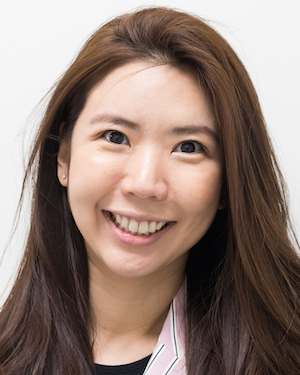
Staying In Control and Winning the Waiting Game ⟩
November 5, 2019, by Catherine
I have never been good at waiting. Waiting in line at a grocery store, no thank you (thank goodness for self-checkout). Waiting for standard shipping, grueling. Waiting for my test scores or that acceptance letter, I cannot even. Unfortunately, life is not all 2-day shipping, and express checkout lanes, and at some point or another we will find ourselves playing the waiting game. So how do you handle the stress of waiting, and cope with not knowing the immediate next step? Here are some ways I stay in control, and win in these stressful pockets of time.
- Treat yourself. Congratulations! Whatever it is you are waiting for, an application, finishing a test, or just getting that elective request form in, you did it. You have made a tangible step towards your goal, and that in itself is an accomplishment. Give yourself a pat on the back, take some time to relax, and go get yourself a treat. You earned it.
- Write down your fears. Sometimes it’s the “not knowing” part of waiting that can feed into the anxiety and frustrations of waiting. If you find yourself overwhelmed with “what if” questions, I find it helpful to write them down. Take some time to reflect on what are the worst things that can happen if what you are hoping for doesn’t come into fruition. What is the worst case scenario? Once you have that down, write down at least one thing you can do to make that situation better, and one person that you could ask for help. Having a list of what I can do has helped me overcome many restless nights.
- Reach out. Spending time with friends and family for a venting session, engaging in some leisurely occupations, and even just some extra tactile input of a big hug has always been helpful when I’m not feeling in control. Knowing you have people on your side, and rooting for you is always a great source of strength and support.
- Get organized. Sometimes after taking a big test, I come back to messy desk covered in notes, coffee cups and scattered post-its. Looking at such a messy space can make me feel even more out of control. Cleaning your space and getting organized provides me a visual cue to calm my mind and get back that sense of control. You don’t have to go full Marie Kondo, but even just throwing out those old receipts and candy wrappers that have been living in the bottom of your bag can do the trick.
Waiting is no fun and not know what’s going to happen can be scary. These are just some of things that have helped me in the past and I hope are helpful for you. If you feel that you need more information or want to talk to someone about your questions about the OTD program, I am here for you as a resource, so feel free to check out my blog, send in some suggestions or requests for future posts, or just to say hi, send me an email at .(JavaScript must be enabled to view this email address).
⋯
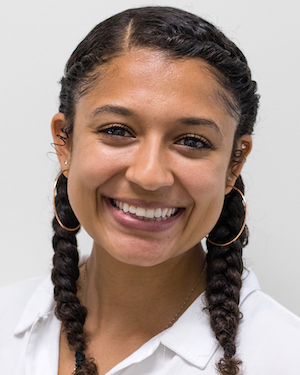
Fight on in Fieldwork ✌ ⟩
November 4, 2019, by Kat
October 21st–25th . . . my full week of fieldwork . . .
This semester, for my adult rehab level I fieldwork, I was placed at Providence Saint John’s Health Center in Santa Monica. A moment of honesty . . . prior to this placement I had little knowledge about what OTs did in the hospital setting. I remember walking in on my first day in scrubs and not knowing what to expect. On my first day I got put to the test though! My CI (clinical instructor) had a patient that was in the ICU (intensive care unit) who she was going to co-treat with a PT. The patient’s case was quite complicated and they needed help. I helped manage the patient’s lines (meaning I helped with all of the IV’s and tubes) as the OT and PT helped the patient sit on the edge of his bed. This small task of managing a patient’s lines gave me great insight into the impact that an acute inpatient OT can have on a person. Throughout my time at St. John’s I have learned that OTs in the hospital setting are essential to the safety and quality of life of patients. Not only do they ensure that a patient can be safe with their self-care routine, but they also help develop or fine tune the skills necessary for patients to be able to continue participating in the activities that are important to them — their meaningful occupations!
During my full week, I was able to see so many things. I was in the inpatient wings, the NICU (with the wittle babies!), and also had a trip down to the ER to see what a respiratory therapist does and how their work can influence the work an OT does. I was busssyyy! But I had so much fun. Also, how cool is it that my CI is an alumni from USC?! I can honestly say that I am blessed to be shadowing and working with the AMAZING Ally Buescher. I have learned so much from her. She has high expectations for me as a level I student which is pushing me to develop my clinical reasoning skills. She also has so much knowledge about the field and about the program at USC, which is helpful when I have a million questions.
USC has a deep line-up when it comes to networking. USC releases talented OTs into the world and many of them host students for their fieldwork. We literally have people everywhere! National and international possibilities are available. It is nice to know that as a student, I am well taken care of by the fieldwork coordinators here in the Chan Division. The fieldwork opportunities I have been able to experience so far have been one of a kind. My first ever level I fieldwork experience was a competitive Skid Row Housing Trust position where I was mentored by the renowned Dr. Deborah Pitts! This specific mentorship was made possible because of a city grant that was established for the Fall of 2018. Here’s a little more info about Level I fieldwork.
Long story short, my full week of fieldwork was a blast and USC offers remarkable fieldwork experiences!
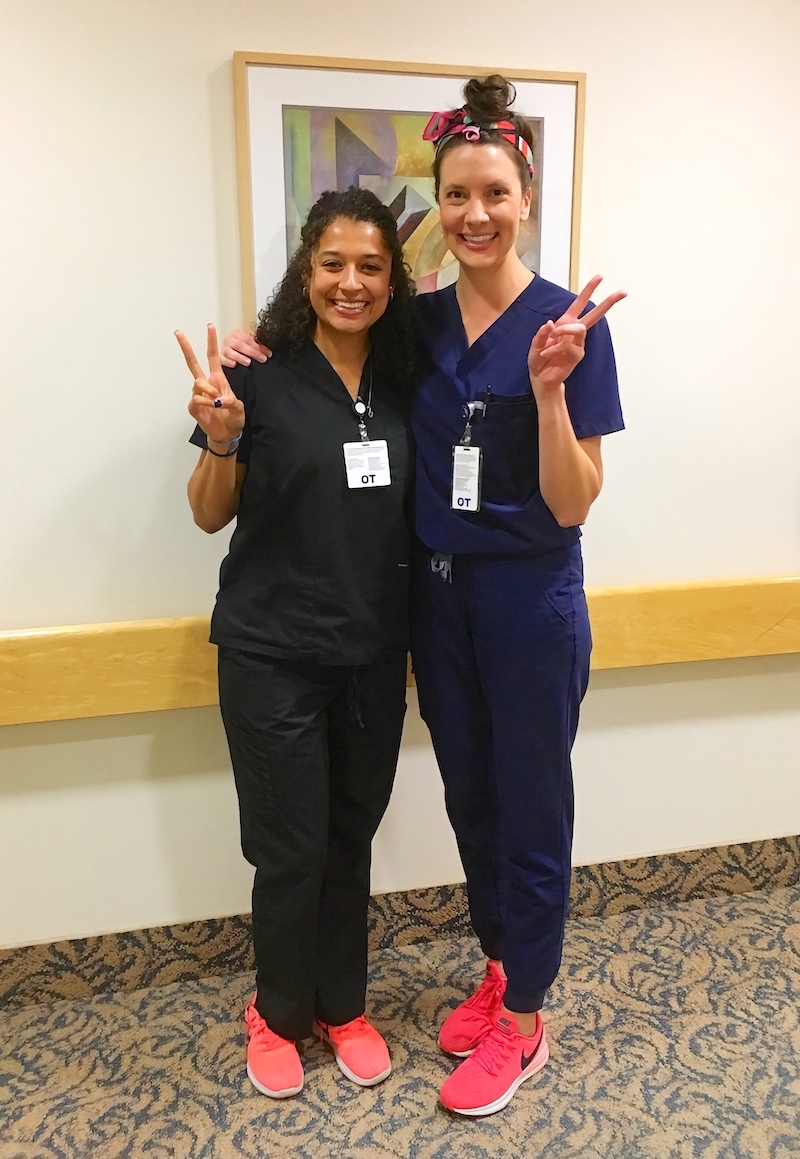
Ally and I reppin that Trojan life! Fight on! ✌ PS, we coordinate our shoe game
⋯
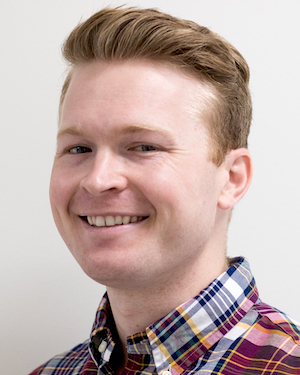
Staying Active on Campus ⟩
October 30, 2019, by Kevin
During my first year here at USC, I lost touch with my love for fitness and staying active. Over the course of the year, I tended to prioritize my studies and other extracurricular activities over my physical fitness. Soon after taking on this more sedentary lifestyle I noticed that my mood had decreased and my stress levels had increased so I decided to make a change. Over the summer, I took advantage of the extra time I had after fieldwork to make small changes to my diet and fitness. After several weeks of making small lifestyle adjustments, I was back in the swing of physical activity and nutritious eating. As the next academic year approached I began thinking about ways I can stay active even when on campus and here are some of my favorite ideas:
- Take a walk during class breaks
Many of my peers choose to take walks during breaks from class and there are many reasons to do so. Not only do you get some light physical activity, but the exposure to sunlight and the beautiful campus gardens allows me to recharge and focus when I come back to class. - Stop at the HSC Fitness Center
As long as you are a registered student with at least 1 unit, you will have free access to the HSC fitness center Monday-Friday 6:00 a.m. – 9:00 a.m. and Saturday 9:00 a.m. – 1:00 p.m. You can easily get a quick workout in before or after classes utilizing this close to campus gym! - Do something active at lunch
My favorite of these three options is to plan to do something active during our lunch breaks. About twice a month, I play a Frisbee game called KanJam with several of my friends from the Chan Division. The grassy area outside quench is the perfect spot to set-up a quick pick-up game and have some fun while getting some exercise.
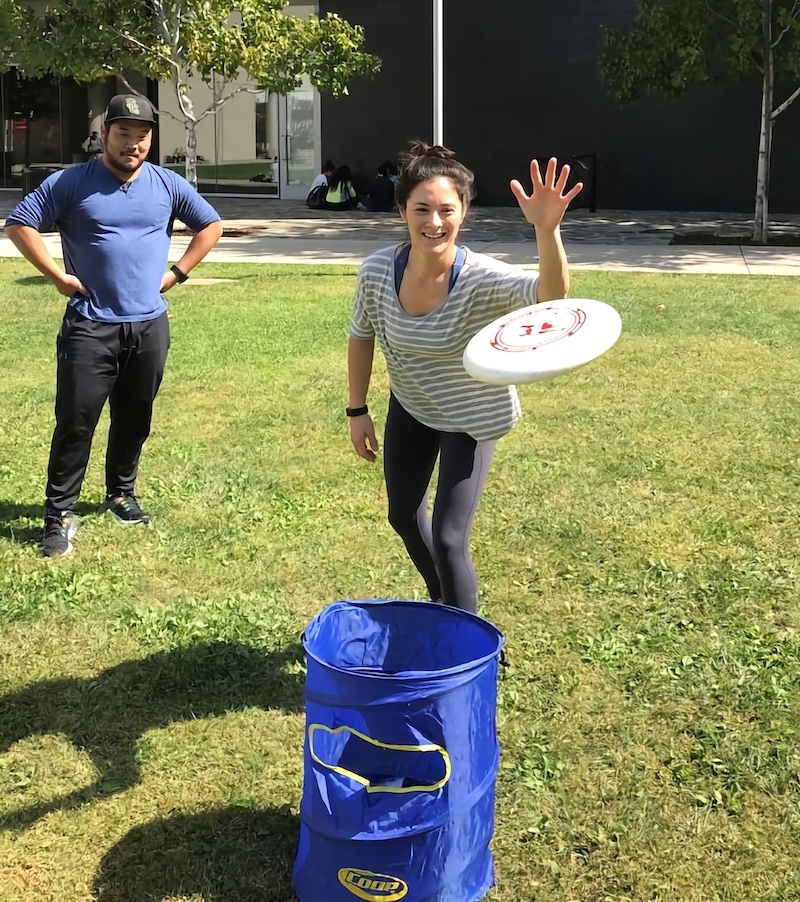
MA-II student Rachel Kent scores 3 points while playing KanJam
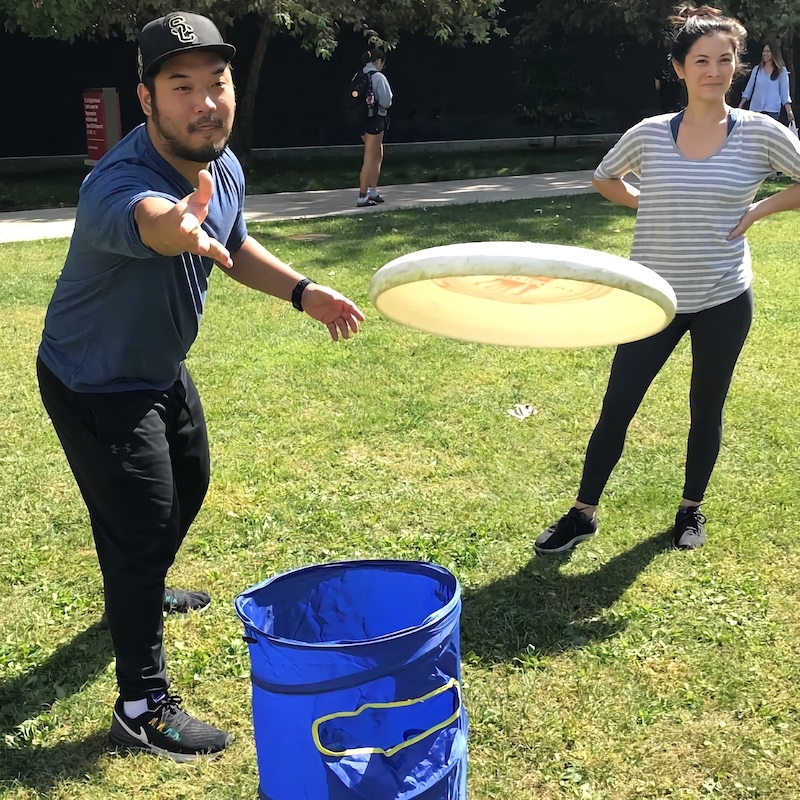
MA-II student Ty Kim throwing a frisbee to his partner while playing KanJam
Since implementing these small changes in my daily routine, I have experienced many benefits far beyond improving my mood and stress levels. I found that after exercising I have more energy in class and throughout my day. Additionally, I have gained new friends on my daily walks during class breaks and through playing exciting games of KanJam!
If you have any other ideas I didn’t mention or would like to join-in on any of these activities, I would love to hear from you in the comment section below!
⋯

My Community, My Family ⟩
October 22, 2019, by Catherine
It’s that time of the year, midterms, and most of you (MAII second years) are at your full week of fieldwork. During this first semester of the OTD, these milestones of the curriculum don’t resonate as strongly, as we are out in the wild, practicing, most of us in class for only one day of the week. While there is a sense of relief that the stress of midterm tests and assignments are no longer at the top of my list of worries, there was always a sense of comradery that I was able to share with my cohort along the way (shout out to my Cohort B!). Like the poem goes, “We’re all in this together.”
It’s also that time of year of pumpkin spice, and everything nice. Halloween is just around the corner, and then it will Thanksgiving, and so on. You get the picture. It’s the beginning of the time of the year where family, friends, and loved ones can share experiences, occupations and make stories. While I love my family, and miss my friends back home, I’m grateful to have a family here at Chan that I have shared and continue to share these moments with.
The truth is, during residency, you won’t have the luxury of seeing your cohort every day. You won’t be sharing these experiences together as a group. This is, unless you have a co-resident at your practice setting. But what you will have, is your Community of Practice. In the OT 620 class, that you enroll in the first semester of the program, you can expect to be placed into groups of peers/colleagues that share a commonality of practice area. Through my weekly check-ins with my CoP, we are able to mutually support each other through discussions, debrief and resource sharing, specific to our practice area. We even have a journal club!
So while I may not have my entire cohort, I now have my Community of Practice. My family, my support system, and together we got each other’s back. So my little take away I hope to share through this post is to cherish the cohort you have today, and look forward to your Community of Practice in the future.
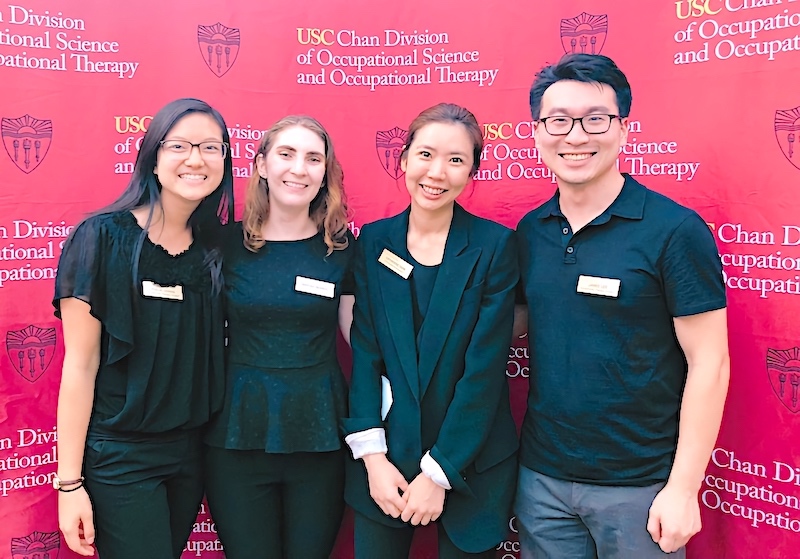
⋯
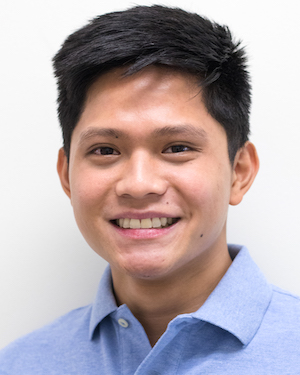
Fight On for Mental Health! ⟩
October 21, 2019, by Japeth
Among all the months in a year, my most favorite is October. Aside from it being my birthday month, it is also a time for advocates of mental health to further raise awareness about it. Advocating for mental health is not easy, and sometimes it even feels like an uphill climb. For some, it is an issue that can be disregarded easily and for others, it can be very debilitating. For me, our mental health is just as important as our physical health and we owe it to ourselves to take care of it.
Last 2017, I joined a mental health awareness event at a hospital where I was doing my internship. We did some Tai Chi techniques and our leader talked about the effects of Tai Chi on relaxation. Last year, I became active in attending mental health talks and meetings together with some doctors and government officials. This year, to celebrate mental health awareness month, my friends and I decided to watch a movie: Joker.
My take on the movie:
(I am not a film critic; I am just using my OT lens!)
Producing a movie about mental health is a tough thing to do, since not everyone may appreciate it. However, kudos to the whole production team for a well portrayed movie. Joker, the character in the story, went through so much since he was young. Growing up, life was very tough for him. He did not have a good social support and his work environment was also very unsupportive and unhealthy. Moreover, society in general was kind of judgmental towards him and was not very accommodating to his needs. On the other hand, one thing I personally did not like about the movie was the part that the character started to fight back by being extra aggressive.
Moving away from the movie and talking about my own thoughts:
Mental health issues may stem from different sources — some may develop due to childhood trauma, stress and overwork, some may be genetically predisposed, et cetera. Having mental health issues is not wrong and it needs professional help from the right individuals. And we, occupational therapists, have a huge role in mental health practice. If we all move forward together, we can advance our role and collectively, we can help bring change in society.
The rise of mental health issues is growing dramatically over the years, but our response as a community is not at par with its rise, yet. However, knowing that a lot of people are becoming more active in advocating for it, I feel that we are not too far from a world that is more inclusive despite of mental health issues.
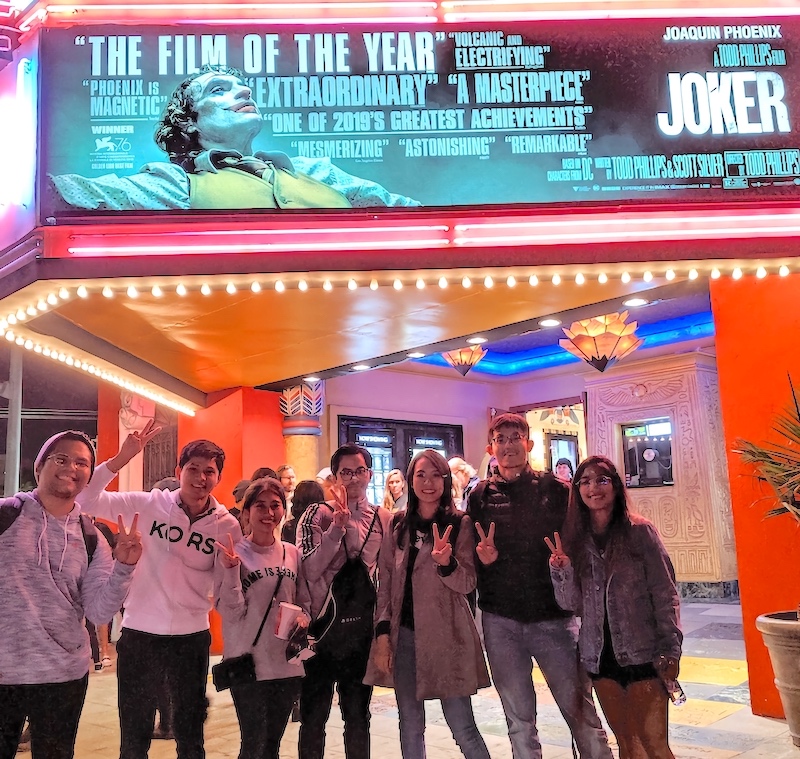
Fight On for Mental Health!
Please note that the views expressed in this blog post are the opinion of the student and in no way represent an official position of USC Chan.
⋯





